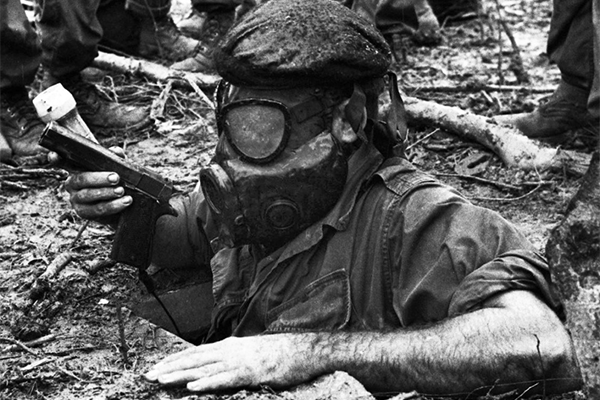There has been far too much ink expended on the Vietnam War to waste time trying to pick out merits of much of the decision-making surrounding the conflict. I was only a kid in the 1960s and have only vague recollections of the conflict on my TV news.
There are iconic images, of course; the policeman shooting the Vietcong prisoner, the little girl burned by napalm, Don McCullin’s photography and the chaos in Saigon at the end. I read Chicken Hawk and Dispatches and saw the obvious movies. One abiding memory I have is of witnessing students quietly demonstrating against the showing of John Wayne’s The Green Berets in Amsterdam when I was a lad.
I’ve been ploughing my way through this wonderful book for some time and wanted to read it in full before I wrote anything down rather than attempt a review after a quick browse. I started it only a short time after finishing Brian VanDeMark’s Road to Disaster that looked at the politics of Vietnam set against the wider picture of the Cold War. It was an eye opener, to say the least.
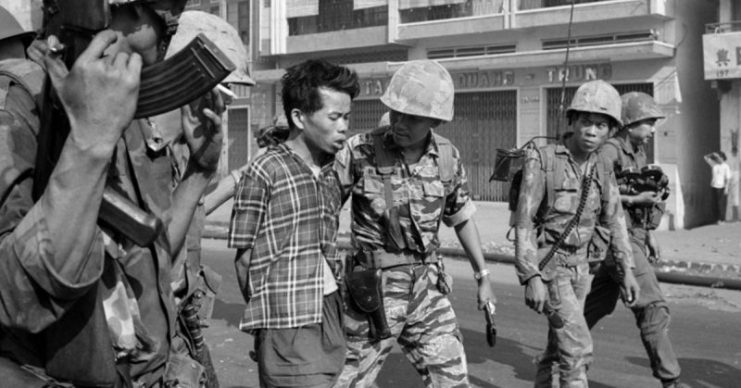
Max Hastings takes care to cite the brilliant work of Fredrik Logevall whose Embers of War is one of those ‘must read’ masterpieces I would always recommend. The result of finishing this latest book is to leave you in no doubt that Hastings’ Vietnam completes a trilogy of brilliant books that will give you a complete picture of a conflict that left so many scars.
Max Hastings is a newspaperman and a writer of history whose work fills up a corner of my library. I have long admired his style of writing and his diligence. He brings a worldly wisdom to his assessments and it is important to remember that, in the case of Vietnam, he was there seeing the Johnson administration flagellate itself to ruin over the war even as LBJ had set in train so many good things on the domestic front.
The presiding theme of this book from first to last is the tragedy of it all. This was a war fought by one side for a confusing mishmash of reasons while the other fought for a liberation of sorts fuelled by brutal ideology. That bigger picture I mentioned – the clash of wills between East and West – had much to answer for, but there were too many competing elements to blame any one catalyst for the war.
Sympathy with the end of colonial domination is the easiest to subscribe to. Having ejected the French the Vietnamese then became pawns in a wholly more dangerous game. But do not think of them all as innocents caught amid a greater struggle.
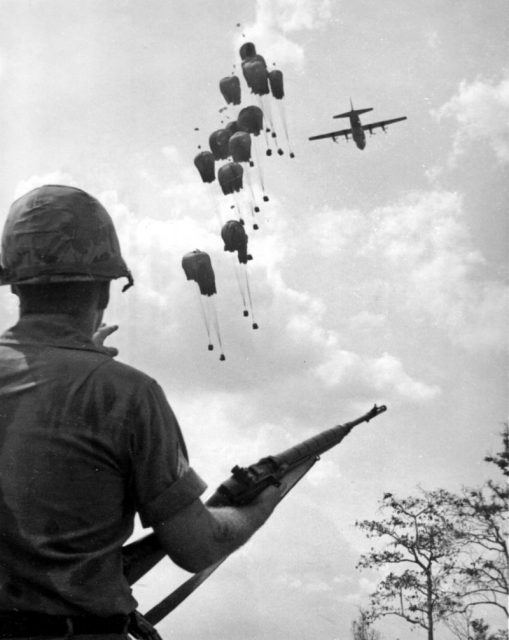
The French were gone and the country divided but there was confused thinking in the United States over what to do next as North and South went about their business. We hear often how much the US had done to support independent nations freed from imperialism and this would be laudable if it was a consistent approach.
The fact that the Vietnamese looked to the Soviets and Chinese for inspiration fluttered hearts in Washington, creating the spectre of the domino effect whereby all of Asia was lost to the Red menace. Given the mood of the times it would be churlish to use hindsight to mock this notion.
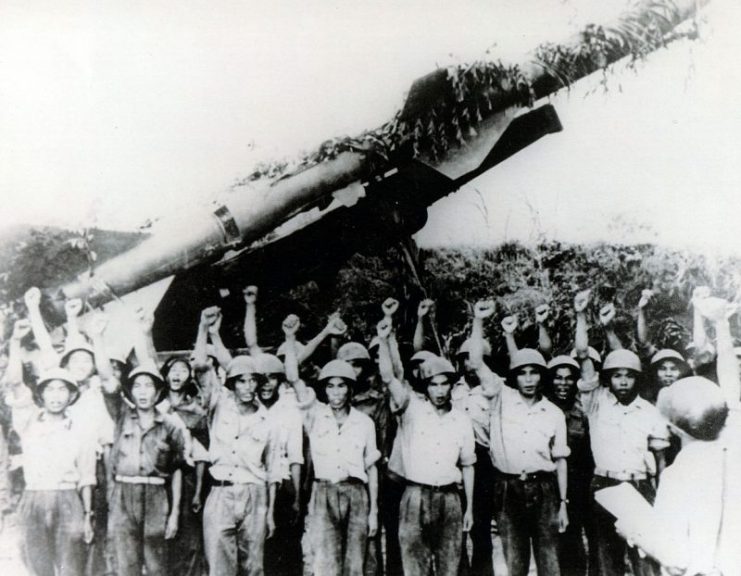
The Soviets were happy to sponsor the rise of friendly states in their image and the North Vietnamese would prove to be particularly robust adherents of Stalinism with all the terrible consequences history has revealed. Meanwhile the South Vietnamese “leadership” presided over an utterly inept banana republic increasingly dependent on Americans money, firepower and blood.
The iniquity of it all isn’t even remotely funny. That the Americans propped up such a hapless bunch of crooks is bewildering, but many leading political and military men sincerely believed they had no choice.
Max Hastings takes us through the collapse of French rule into the bamboozling period of domestic upheaval as North and South sorted themselves out. I found it very difficult to have any admiration for the political leadership in either country – but I suppose Uncle Ho continues to possess some of the aura that drew so many people to believe in the cause of Hanoi.
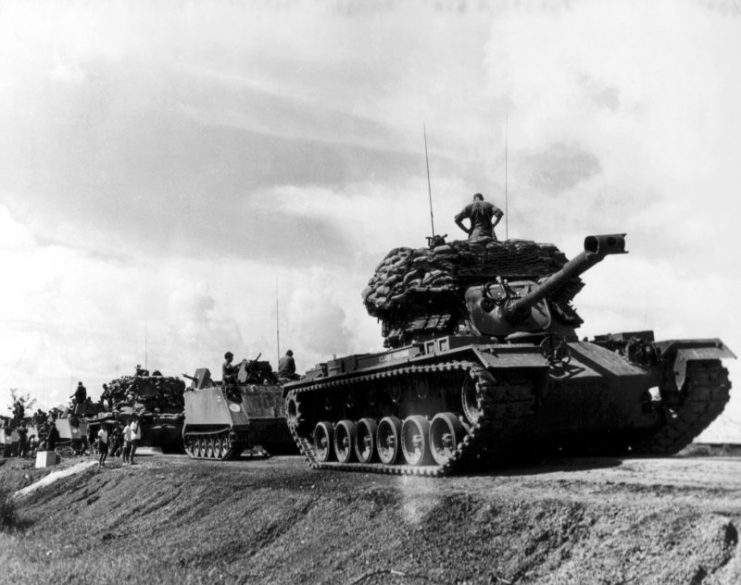
There was sincerity in the American wish to halt the spread of communism, but the US entered into the fray never really knowing their enemy or, more crucially, the people they were aligned to. All that stuff about arrogance and racial or cultural superiority has dogged many a great power.
And yet the Americans often showed breath-taking ignorance about the Vietnamese. They had learned nothing of their history or culture, quite apart from the language. As said, it is important not to get wrapped up in hindsight but all the signs were there that opportunities were lost and many bad decisions made that could so easily have been averted.
Politics and the big stuff are interesting in themselves but this book goes in deeper to bring us accounts of what is was like to be at Dien Bien Phu or on the Ho Chi Minh Trail. We read about the cadres fighting in Saigon during Tet and the terrible destruction of Hue. We can fly thousands of feet up in a B-52 dodging SAMs during Linebacker II or clatter into LZs in a Huey. It’s all here.
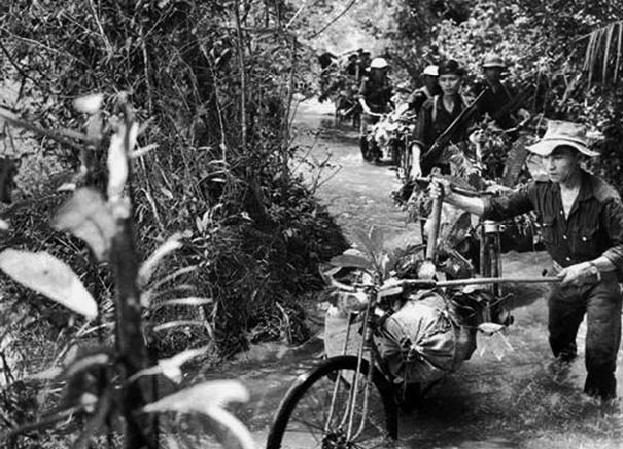
There are some striking moments, perhaps the most absorbing being the collapse of will within the US military as drugs and fragging and loss of faith in the cause took hold. There are some brilliant characters and not a few terrors that commit all manner of horrors and mistakes.
I have to agree with Max Hastings that the myth about the righteousness of Hanoi is well and truly busted by accounts of the regime’s murderous cynicism. Here, if anything; is a truism about communist dictatorship the Kennedy and Johnson administrations were so right to fear but they got the response all wrong.
This book wins on so many levels – it does the politics and the to-ing and fro-ing really well. The human experience element is outstanding while the coverage of the American domestic implosion is compelling.
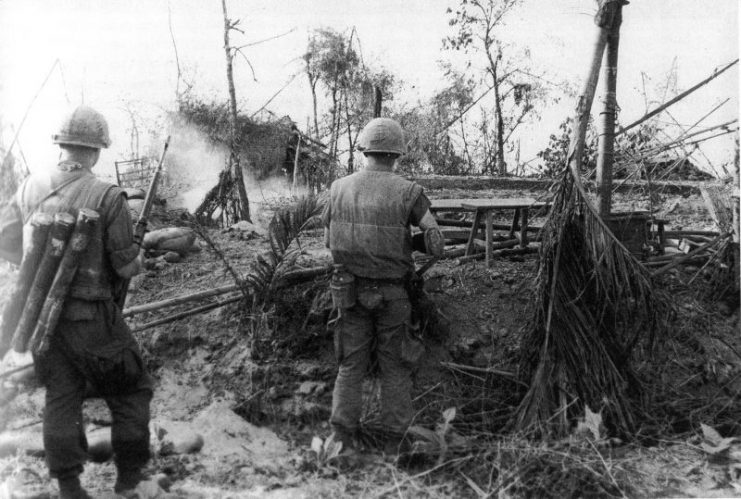
All this in a story that manages to avoid trundling into the sidings of people like Jane Fonda while pointing out the paradox of Tom Hayden who the North Vietnamese admired for his politics but loathed for his treachery of his own country. The fighting, the aims, the politics and the unholy mess of it all were just too complicated for the simple cowboys versus Indians conflict imagined by many on either side.
My son was taught at primary school by a teacher who had served with the Australians in Vietnam and come home to the chance of a university degree. The war changed his life. He did his bit in a conflict that gave him a springboard that took him from Down Under to a little school thousands of miles away. Of all the teachers my lad reluctantly sat in front of, the digger is the bloke he remembers with a modicum of affection. I offer this as the tiniest bit of positivity to come out of the Vietnam War. It isn’t much, is it?
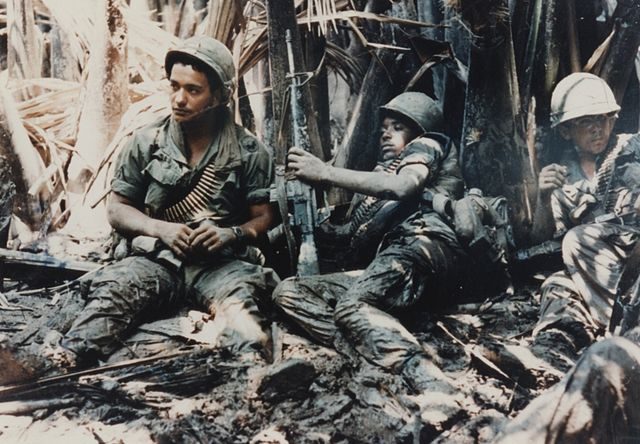
There are a number of classic first hand accounts of the fighting in Vietnam you may prefer to read over the bigger picture stuff. I am getting into the habit of finding books I need to read from doing these reviews and this fantastic book is no different. Thankfully I got some Amazon vouchers for Christmas.
The combat stuff stand on their own merits but it is the politics, the ideology and the very heart and soul of the Vietnamese and post World War II America that you have to get a grip on to make any sense of this most confusing of wars. The other books I have mentioned are essentials in their own right, but this instant classic by Sir Max Hastings wraps it all up in a single mind-numbing tome.
He subtitles the book An Epic Tragedy and this in the simplest of terms is what we are presented with. I can’t dress it up. There is no happy ending.
Reviewed by Mark Barnes for War History Online
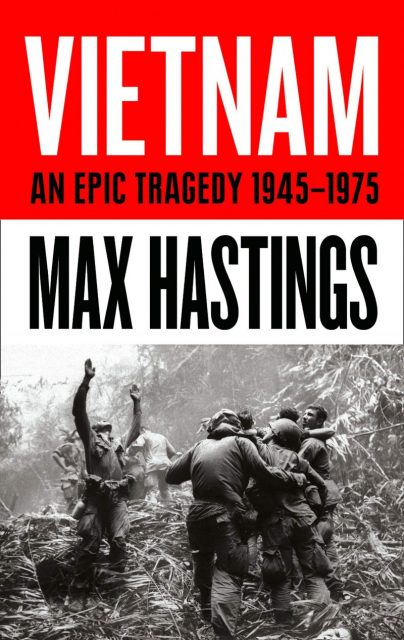
VIETNAM
An Epic Tragedy 1945-1975
By Max Hastings
William Collins
ISBN: 978 0 00 813298 8
